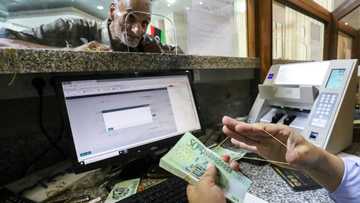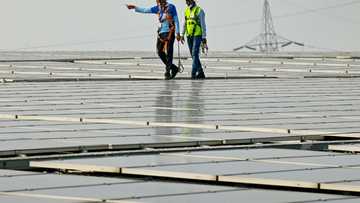Vietnam pushes electric motorbikes as pollution becomes 'unbearable'
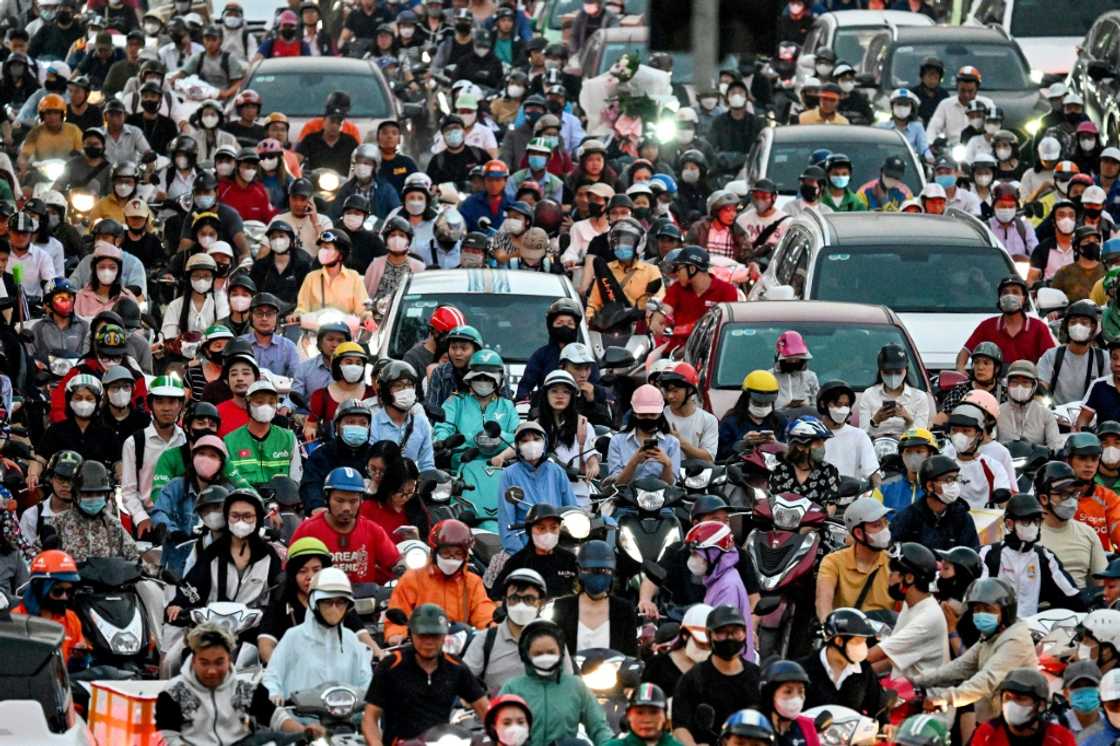
Source: AFP
In Vietnam's heavily polluted capital Hanoi, teenage taxi driver Phung Khac Trung rides his electric motorbike through streets jammed with two-wheelers belching toxic fumes.
Trung, 19, is one of a growing number of Generation-Z workers driving an e-bike trend in the communist nation where 77 million -- largely petrol -- motorbikes rule the roads.
A cheap set of electric wheels can now be had for as little as $500, but issues include wasting hours at charging stations and people finding it hard to give up their habits.
Trung has long hated riding in Hanoi, rated among the world's top 10 polluted capital cities in 2023 by air quality technology firm IQAir.
The air "is unbearable for motorbike riders", said Trung, who is working as a motorbike taxi driver before applying to university.
"When stopping at T-junctions... my only wish is to run the red light. The smell of petrol is so bad," he told AFP after a morning rush-hour shift in air labelled "unhealthy" by IQAir.
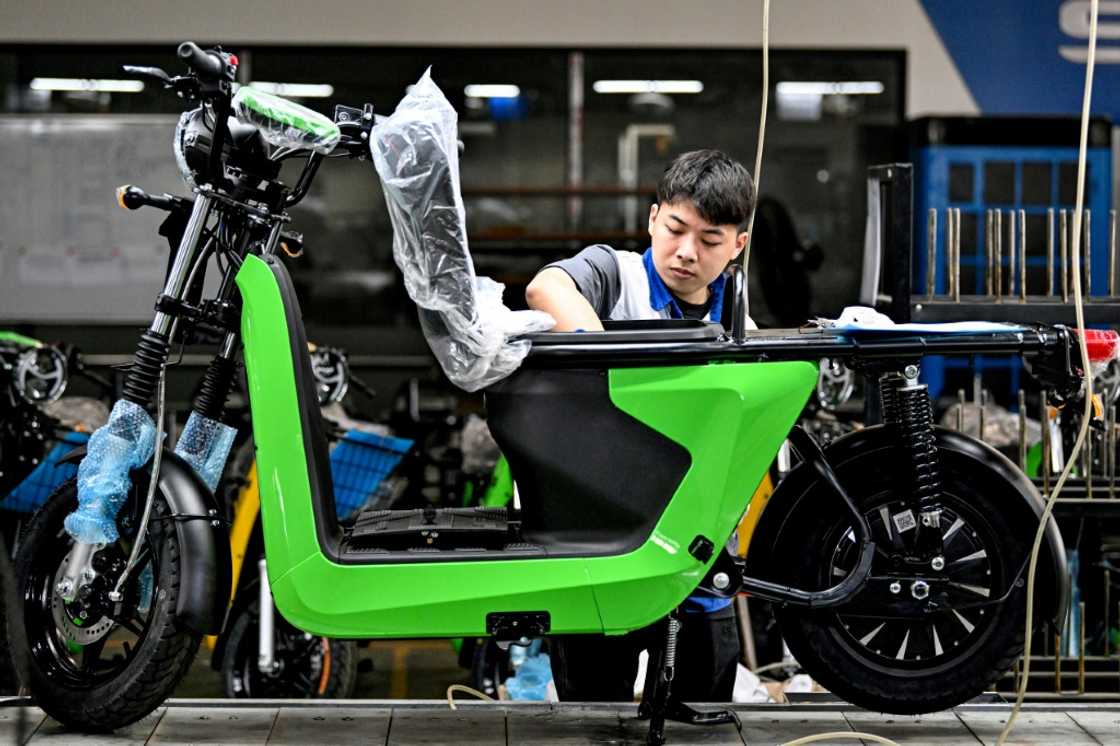
Source: AFP
More than two thirds of the poisonous smog that blankets Hanoi for much of the year is caused by petrol vehicles, city authorities said last year. The World Bank puts the figure at 30 percent.
Vietnam officials have ordered that a quarter of two-wheelers across the country must be electric by 2030 to help battle the air crisis.
In 2023 just nine percent of two wheelers sold were electric, according to the International Energy Agency -- although only in China was the share higher.
Hard to give up
Low running costs and cheap prices are pulling in students, who account for 80 percent of electric two-wheeler users in Vietnam, transport analyst Truong Thi My Thanh said.
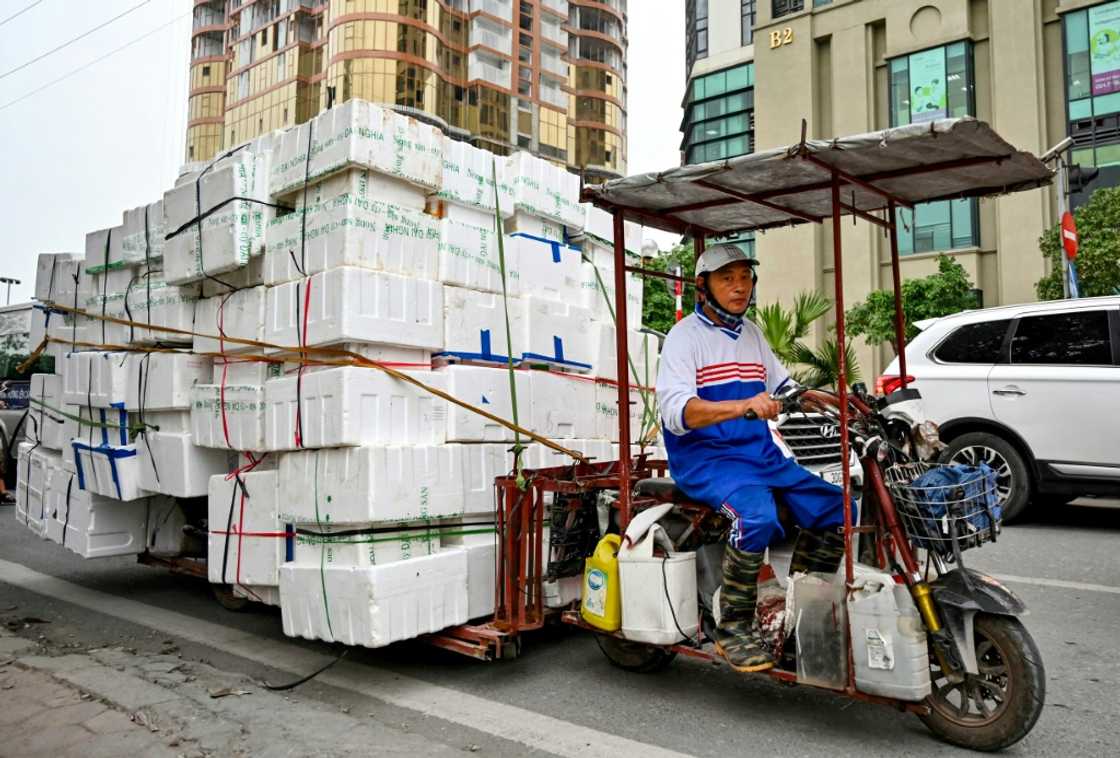
Source: AFP
But for older drivers, it is harder to give up what they know.
Fruit vendor Tran Thi Hoa, 43, has been driving a petrol motorbike for more than two decades and has no intention of switching.
"The gasoline motorbike is so convenient. It takes me just a few minutes to fuel up," she said.
"I know e-bikes are good for the environment and can help me save on petrol, but I am too used to what I have," Hoa told AFP from behind her facemask.
Although most electric two-wheelers can easily be charged at home, fears over battery safety cause many to instead use one of the 150,000 EV power points installed by Nasdaq-listed VinFast across the country.
After a fire last year in Hanoi that killed 56 people, several apartment buildings temporarily restricted EV charging -- before police later ruled out battery charging as a possible cause.
But some remain fearful, while others living in crowded apartment shares have no space to power up.
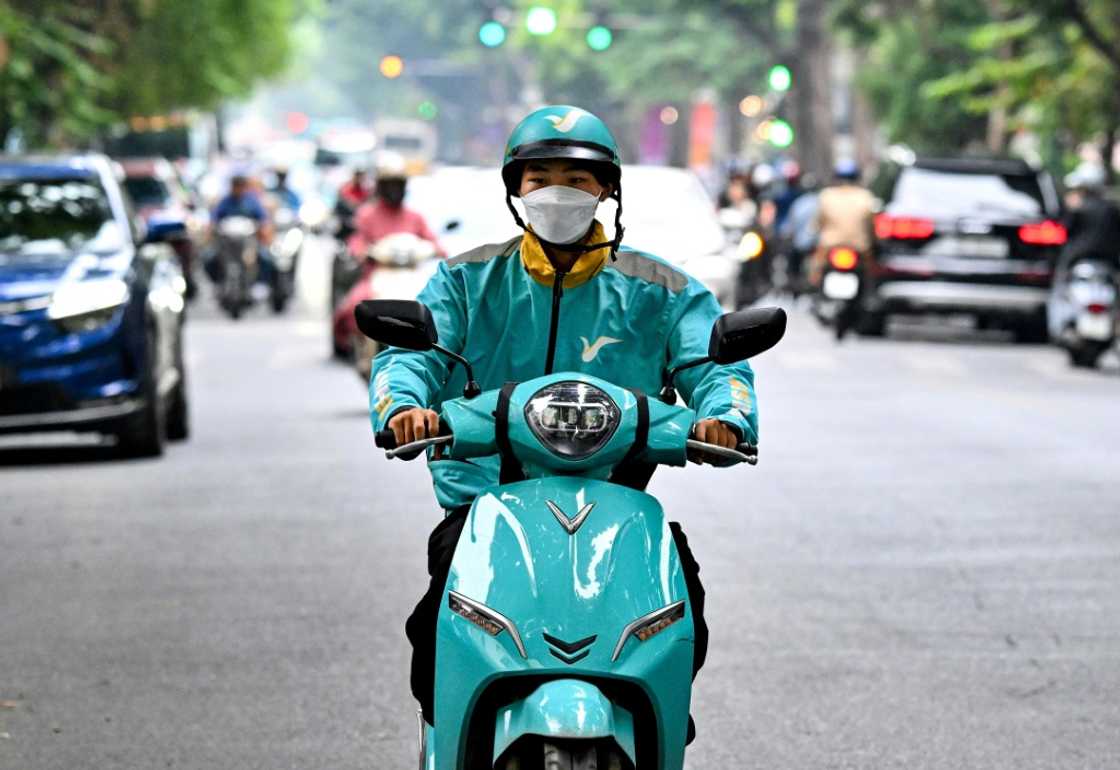
Source: AFP
Trung, whose VinFast scooter has a 200-kilometre (124-mile) range, spends up to three hours a day drinking tea and scrolling on his phone while he waits for his battery to charge -- time he could be picking up fares.
But home-grown start-up Selex, which makes e-bikes and battery packs, has pioneered a quick-fix -- stations where riders can instantly swap a depleted battery for a new one.
'Swapping is critical'
Bowen Wang, senior sustainable transport specialist at the World Bank, told a news conference this month, that it was delivery and taxi firms, as well as rural drivers, who could really benefit.
They "typically drive much longer distances than urban users", he said. "That's where the swapping is critical."
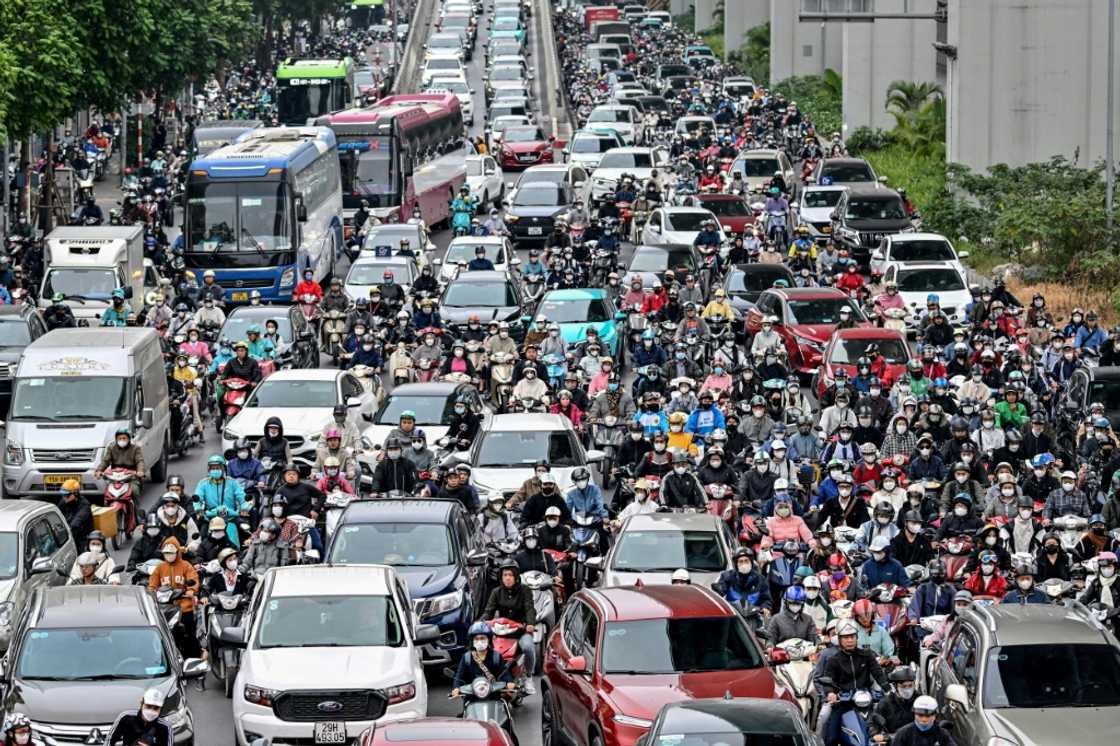
Source: AFP
Selex, which is now backed by the Asian Development Bank, has partnerships with delivery giants Lazada Logistics and DHL Express, who use e-bikes for some of their shipments.
Vingroup -- helmed by Vietnam's richest man -- runs a taxi company with a fleet of thousands of e-bikes, mostly in major cities.
Selex founder Nguyen Phuoc Huu Nguyen, who left his job on a top-secret defence ministry research project to set up the company, urged the government to help drive momentum through incentives.
He suggested that a vehicle registration fee waiver for EVs would help "end-users see the benefits of buying an e-bike".
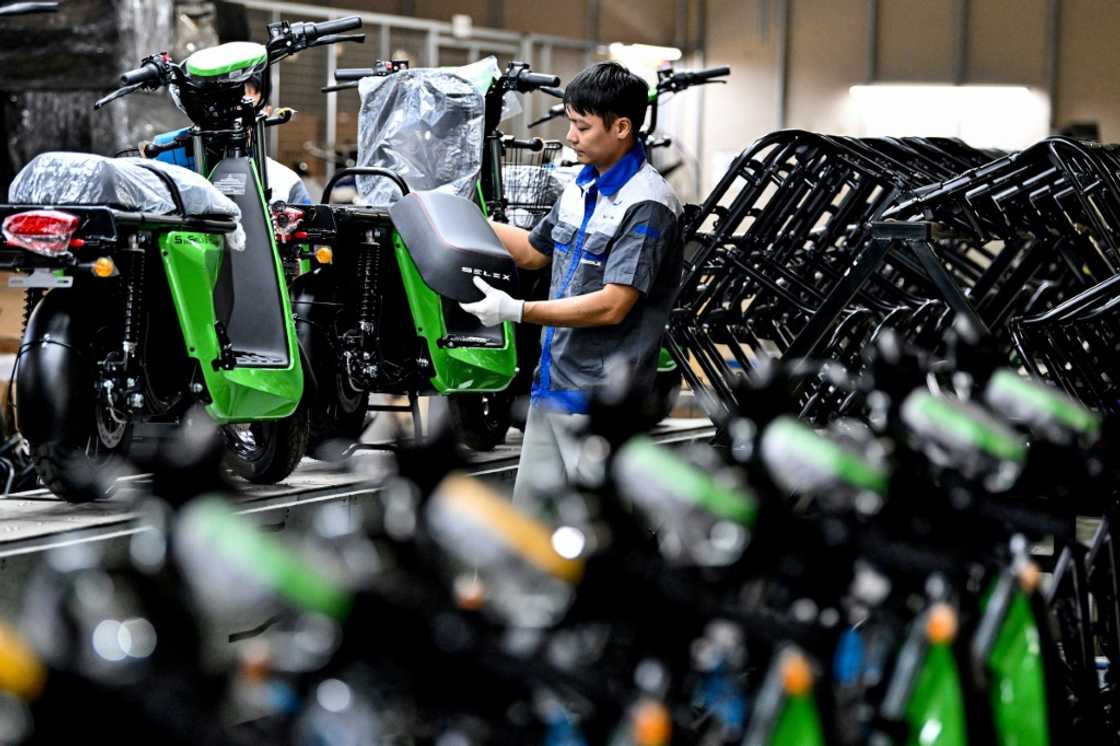
Source: AFP
"We all understand that EVs are good for the environment. But it needs investment."
Transport analyst Thanh emphasises that Hanoi must also embrace public transport alongside EVs if it wants to free up gridlocked streets.
But if a shift to electric cannot fully solve Hanoi's issues, the growth in ownership "is a beacon of hope", Thanh told AFP.
Source: AFP

